Month: April 2012 (Page 2 of 4)
This is a famous children’s book that has only been published in English somewhat recently. It was written in 1938 by author Tae-Jun Lee who wrote many famous stories and was well loved in Korea. In this edition the illustrations are by Dong-Sung Kim and they are painted on traditional Korean paper (han-ji) and use traditional Chinese ink line techniques (muck-sun).
I saw this book in an Australian book store and noticed the Korean names on it. It was only after I bought it and did some research that I realised how special this book is.
It is a simple but heart-wrenching story of a young boy waiting for his mother at a tram stop. The first time I read it I thought there was no conclusion or indication of whether the little boy’s mother returns or not. I actually cried. I realised later that the ending is shown on the very last illustration but you have to look carefully.
Though simply written, the story is incredibly moving – particularly when you know Korea’s history and that this was written during the Japanese occupation – and it really stuck in my mind for days. The illustrations are beautiful. Some are quite simple but they convey so much. And the little boy is so adorable but looks so small and insignificant. What is even more poignant is that the author Tang-Jun Lee was actually an orphan himself. He was a war correspondent during The Korean War but settled in North Korea afterwards and disappeared in 1956…
I have seen some comments online by parent’s that think the book is too sad and they wouldn’t read it to their children but I disagree. It is such a beautiful and moving book that I will be reading it to my future children- in both English and Korean.
This happened about 3 years ago while living in an apartment in Sydney with my brother and a bunch of other people (some Korean).
I’d had a bad day and was upset or stressed about something. My brother was trying to cheer me up.
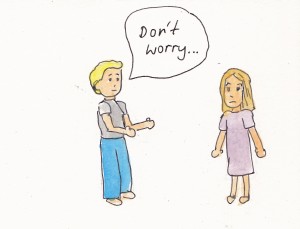 One of our housemates could see I was upset and came over to us.
One of our housemates could see I was upset and came over to us.
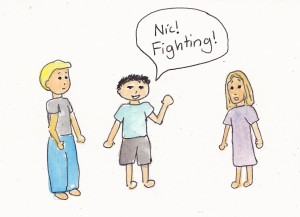
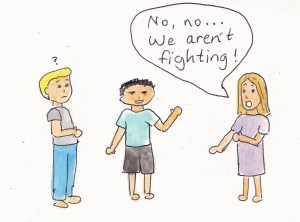 I had no idea that he was using an English word in a Korean way to say something like ‘cheer up!’ or ‘try your best! or ‘you can do it!’ I just thought he was accusing my brother and I of fighting… which we were not doing at all.
I had no idea that he was using an English word in a Korean way to say something like ‘cheer up!’ or ‘try your best! or ‘you can do it!’ I just thought he was accusing my brother and I of fighting… which we were not doing at all.
I didn’t realise the real meaning of this Konglish until much later and when I remembered this incident it suddenly all made sense!
The first time we met it was with a group of people and we did stuff like dinner at Korean restaurant and noraebang. We’d already been talking for hours already but eventually what K-pop I liked came up in the conversation. (There were many more people there but I was too lazy to draw them).
We ended up dating and I forgot that he said that the first time we met.
However, about 6 months later I remembered…
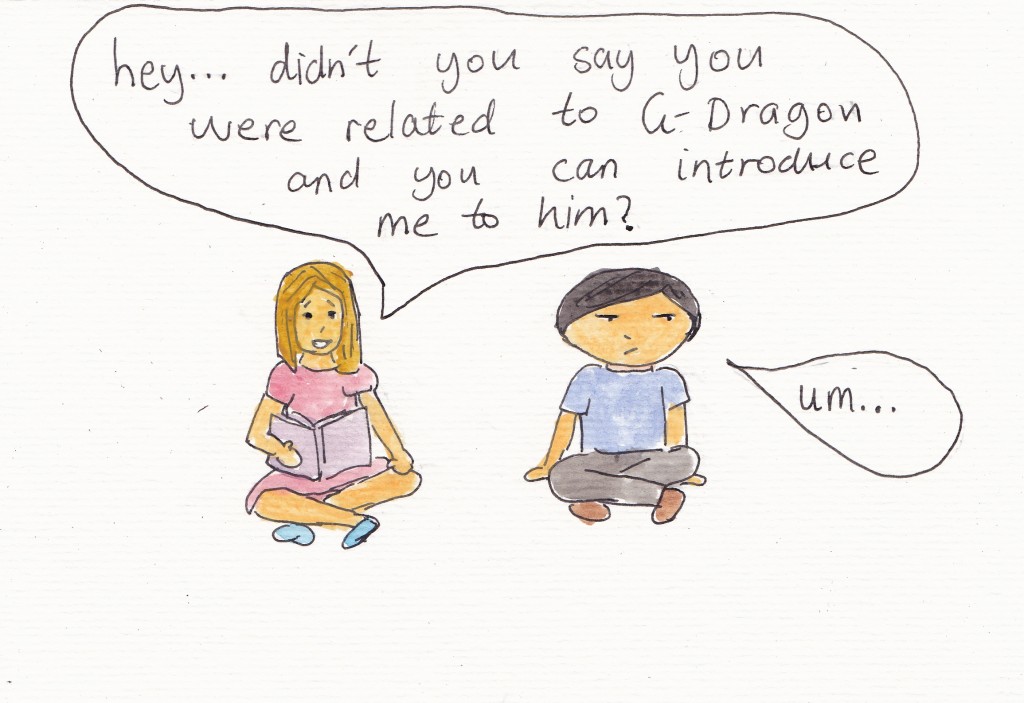 Yeah, that’s not going to happen.
Yeah, that’s not going to happen.
As a couple we have lots of time to work through cultural differences and the motivation to do it. What can be harder to deal with is our own families. We are the in-between, the buffer, between the different culture and our families. We have to try and explain things quickly and try to make them understand in a much shorter time than we actually had for learning new things.
So, of course our families have a much shallower understanding of the other culture. My husband does his best to fit into Australian culture while with my family and does an outstanding job of that. However, through us my family is exposed to more Korean culture which mostly ends up being positive experiences but there can be a few tensions or issues. It is difficult being the person stuck in the middle trying to explain things.
For example, it is hard to explain to people from a christian ‘excessive drinking and getting drunk is morally bad’ background that alcohol is actually an important part of Korean culture. That it is rude to refuse drinks etc. Or how do you explain a culture with a hierarchy system to those who have grown up with the ideal of everyone being equal to each other?
While in Korea my husband has to explain why I need privacy sometimes. In western society we understand the concept of just needing to get away from other people for a little bit for some alone time in order to relax and ‘recharge’ but this is not really part of Korean culture. Korean society is a more collectivist, group-oriented society where as I come from an individualist society. Even when trying my best to fit in, the lack of privacy when staying with family in rural Korea after one month can start to cause some stress within me. This was not major but in these situations it’s my husband who is the one stuck between two cultures and the one who has to do the explaining. I know how difficult that can be because other times it’s me who has to do it.
We are lucky though, both our families have been very supportive of our relationship. But my advice to those starting relationships with someone from another culture, just be aware that no matter how easy it may be to work out differences within your own relationship, actually dealing with families may pose challenges you didn’t expect.
So one day we were shopping while summer sales were on.
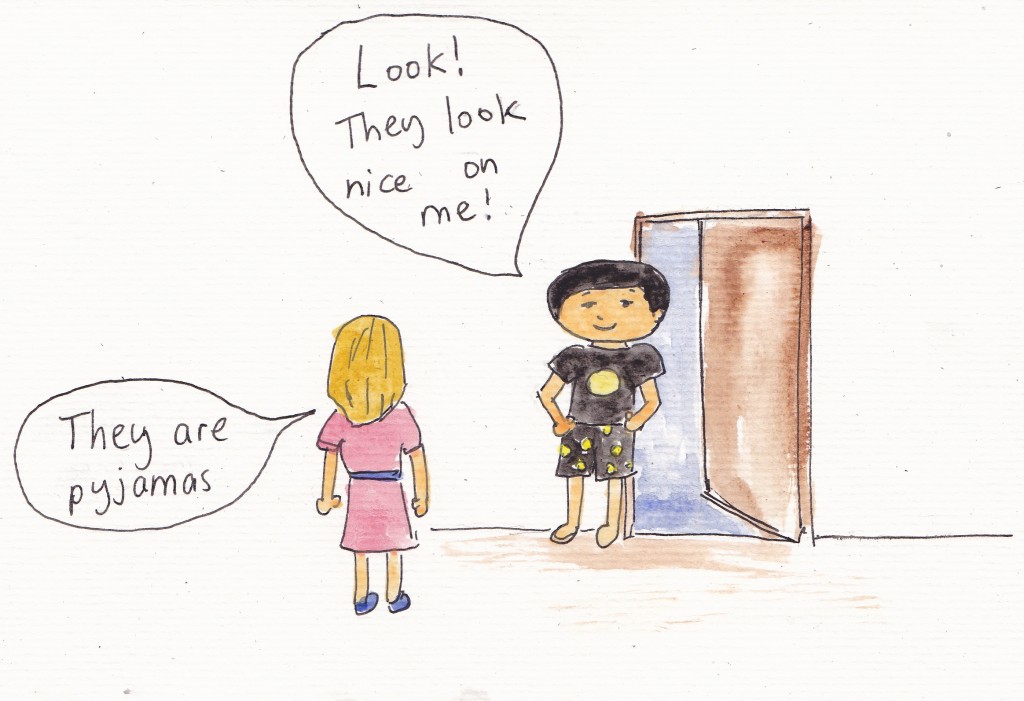
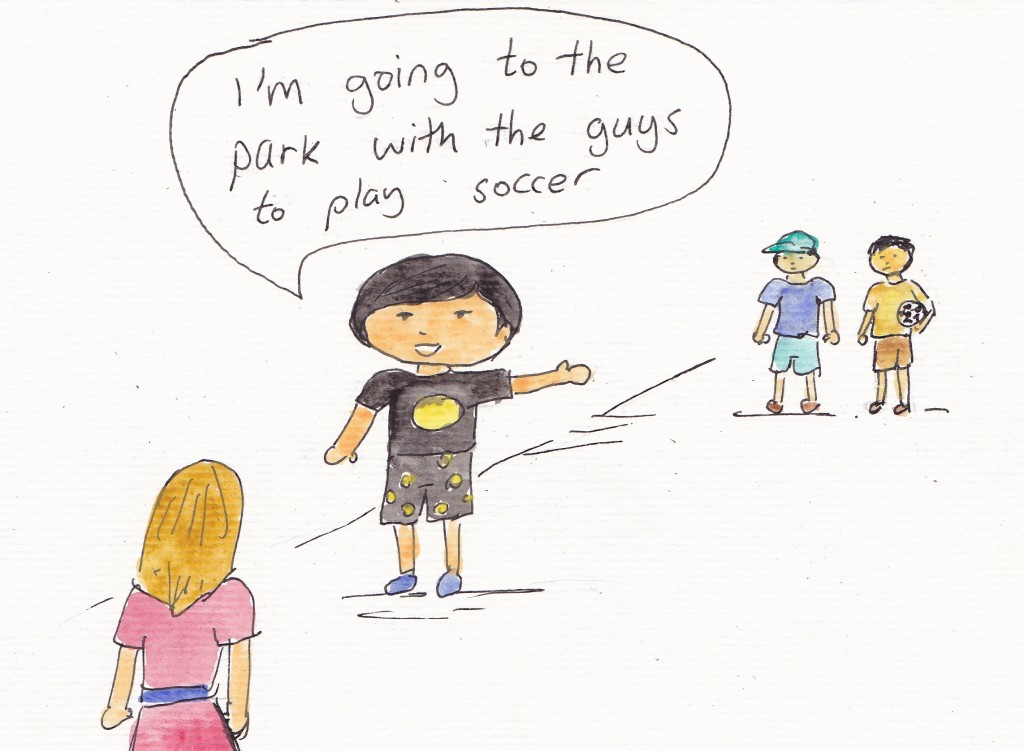
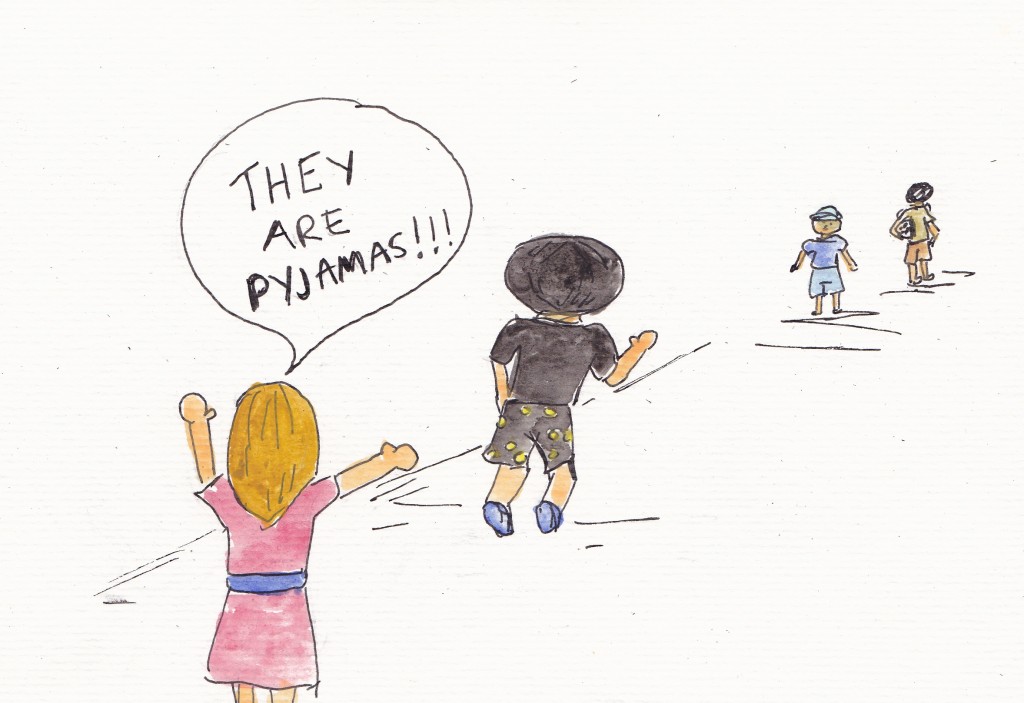 Now, I have a pretty clear line between what I wear to bed and what I wear during the day. Other people maybe have a more blurry line… my husband has no line at all. I don’t know if it’s his ‘I don’t give a crap’ personality or maybe more cultural. I have noticed many Koreans wearing what they wear all day to bed or vice versa but I’m judging from the Koreans I’ve known here in Australia who are usually here on working holiday visas and sometimes act differently and more laid back to how they would in Korea.
Now, I have a pretty clear line between what I wear to bed and what I wear during the day. Other people maybe have a more blurry line… my husband has no line at all. I don’t know if it’s his ‘I don’t give a crap’ personality or maybe more cultural. I have noticed many Koreans wearing what they wear all day to bed or vice versa but I’m judging from the Koreans I’ve known here in Australia who are usually here on working holiday visas and sometimes act differently and more laid back to how they would in Korea.
When we went shopping that time we went with some friends (Korean guys on working holiday visas) who also bought pyjamas and then also wore them to the park to play soccer. And I mean they were clearly pyjamas: Homer Simpson and Mr Men pyjamas. Haha.
Koreans have a lot of difficulty with ‘F’ sounds and will pronounce as a ‘P’ sound. Even though my husband knows how to say an ‘F’ sound he sometimes slips up. ‘D’ and ‘T’ sounds can be similar too. He likes me to correct him so he can improve his English and he is usually very good at saying the word correctly immediately.
Not always though…
One day while watching TV:
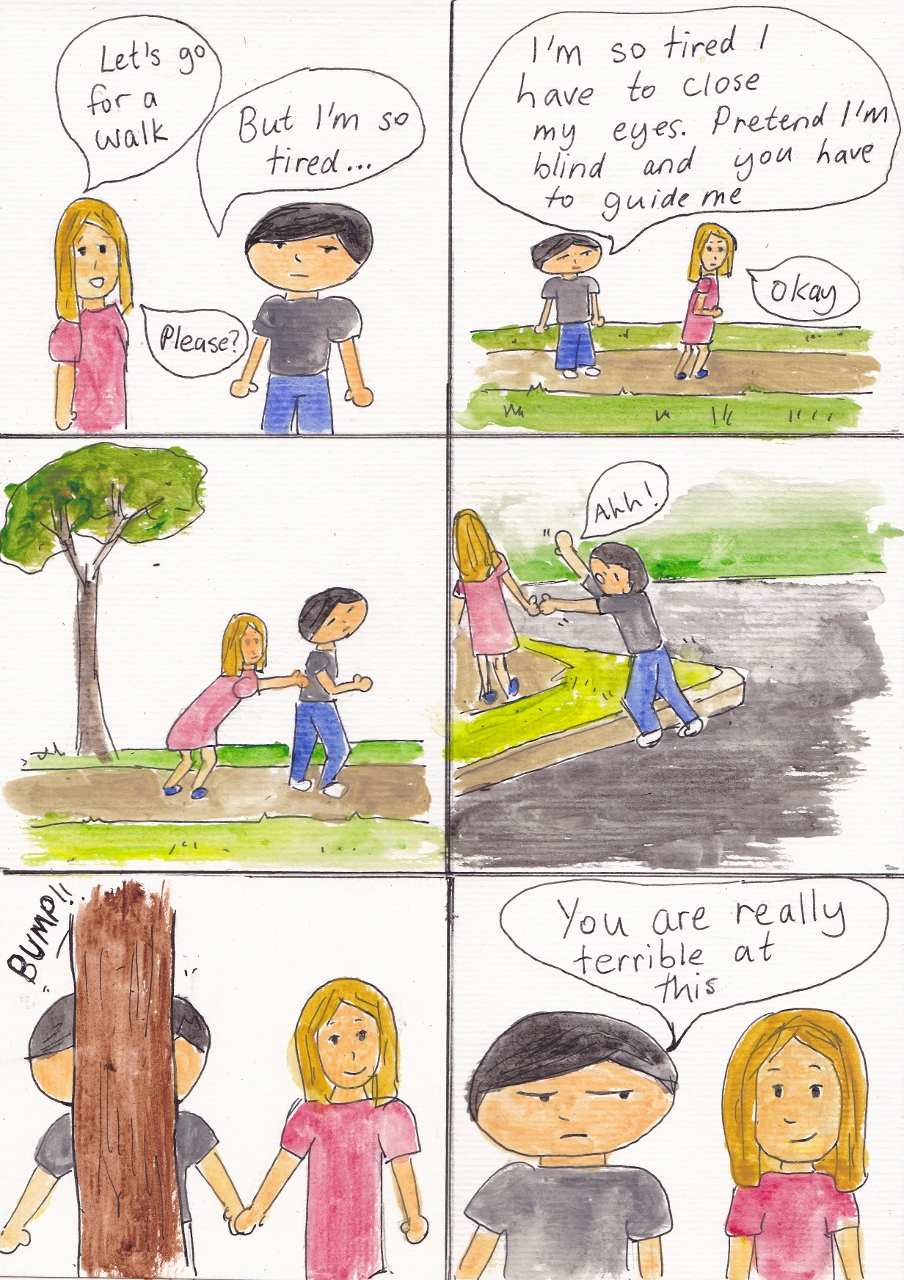
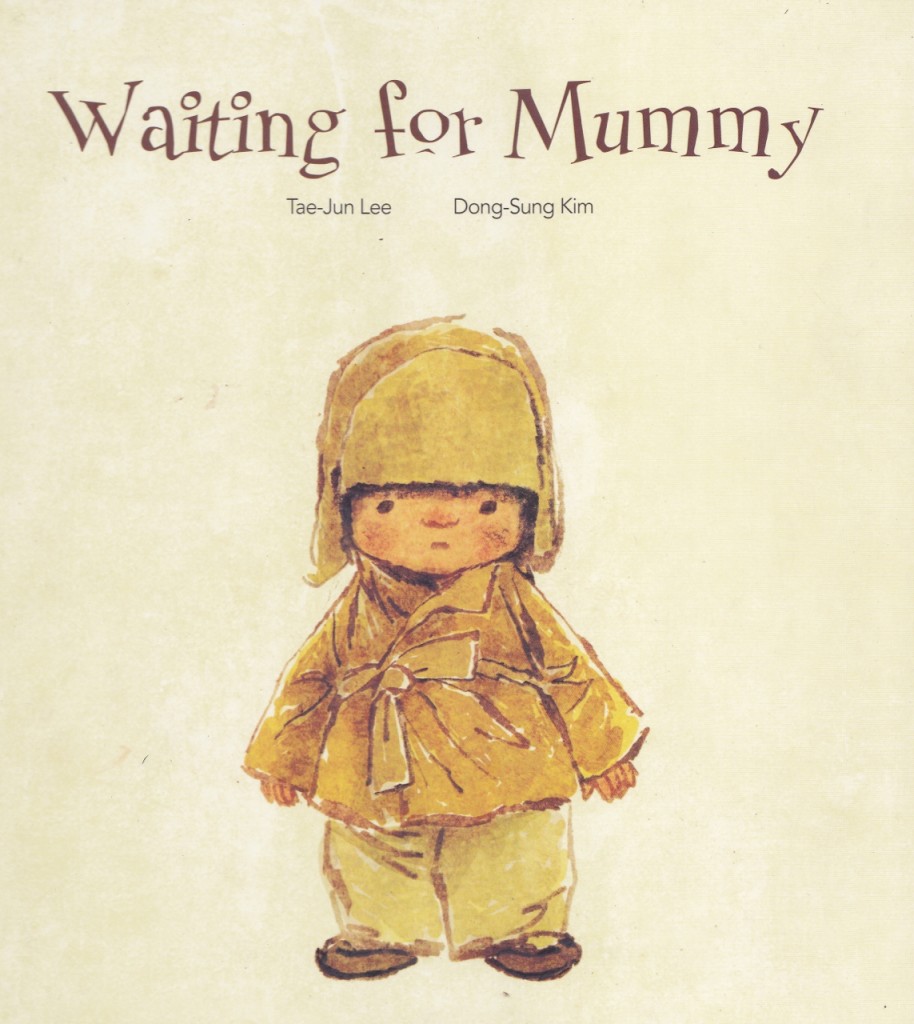
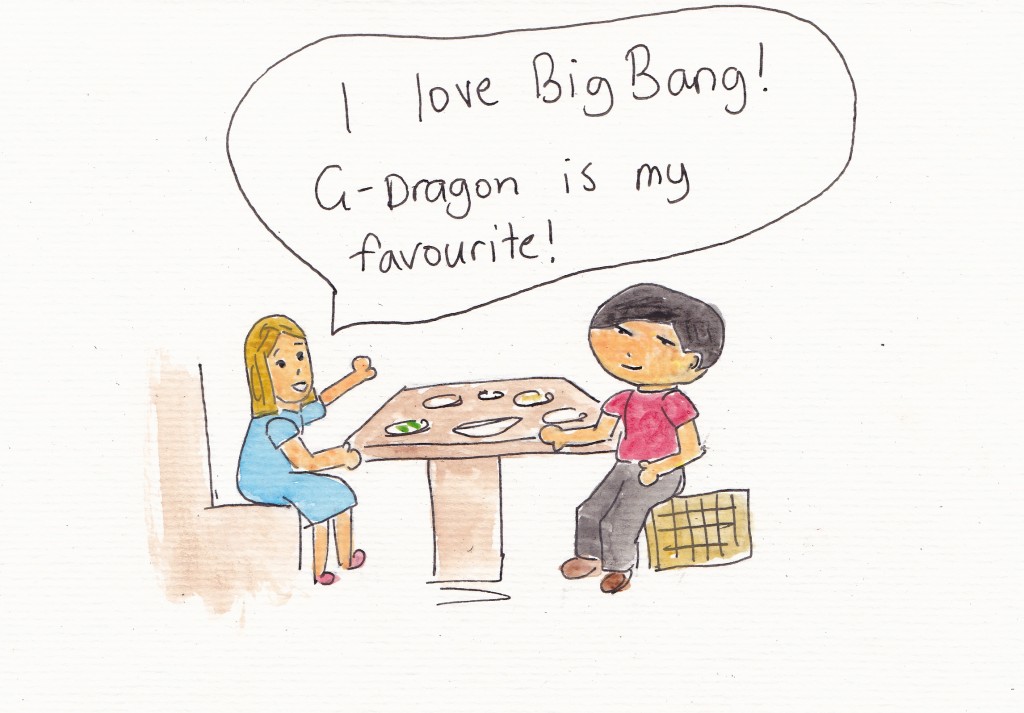
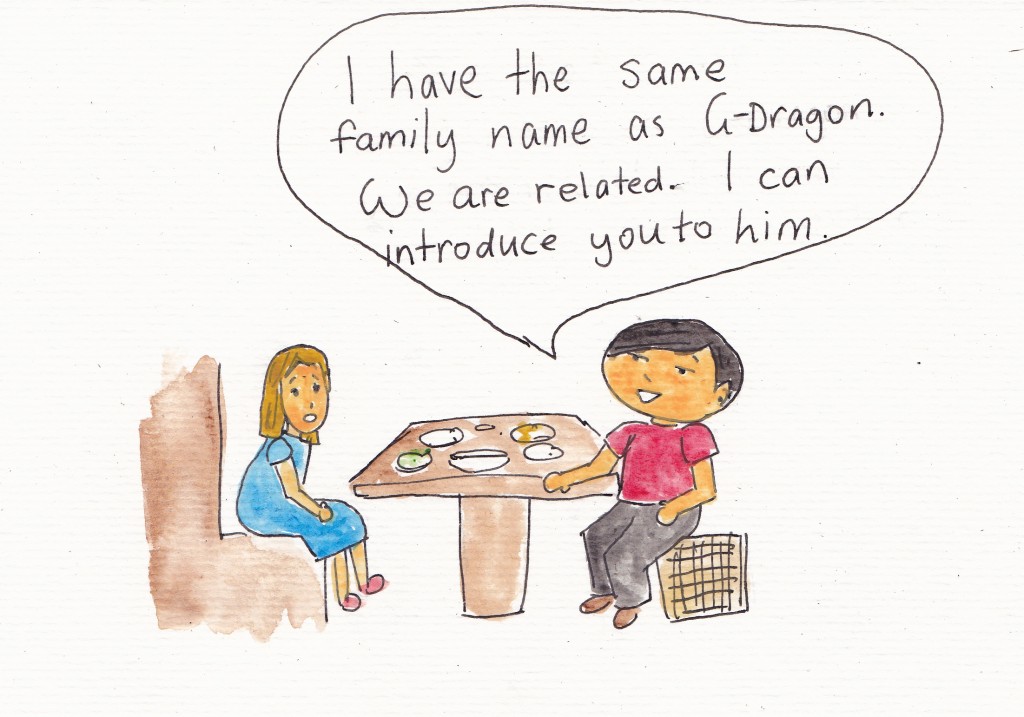
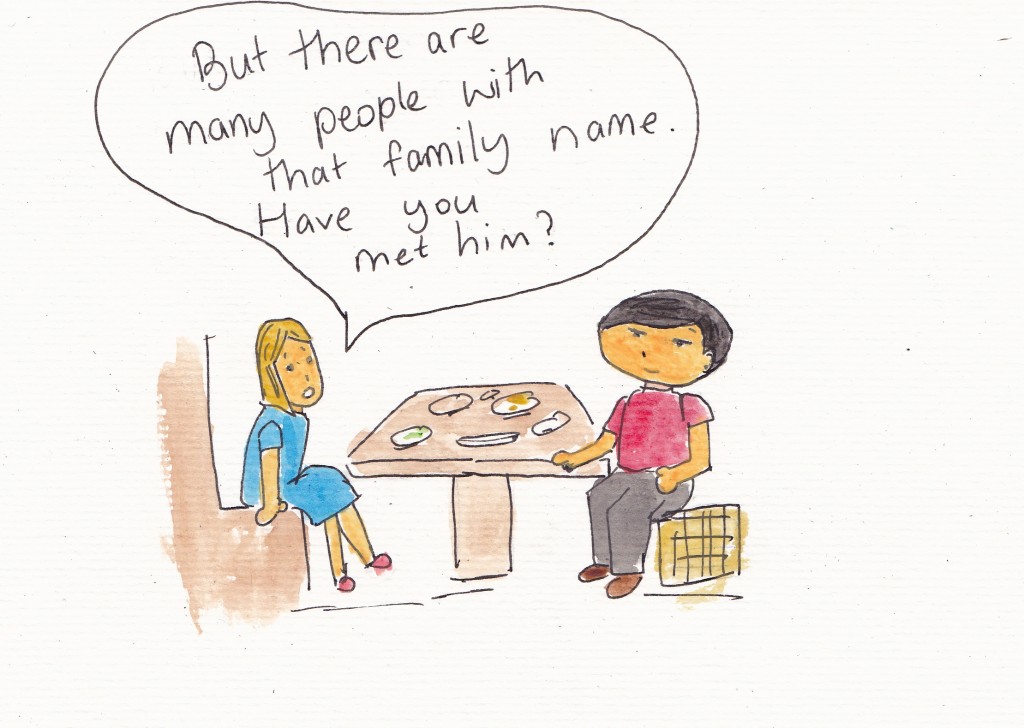
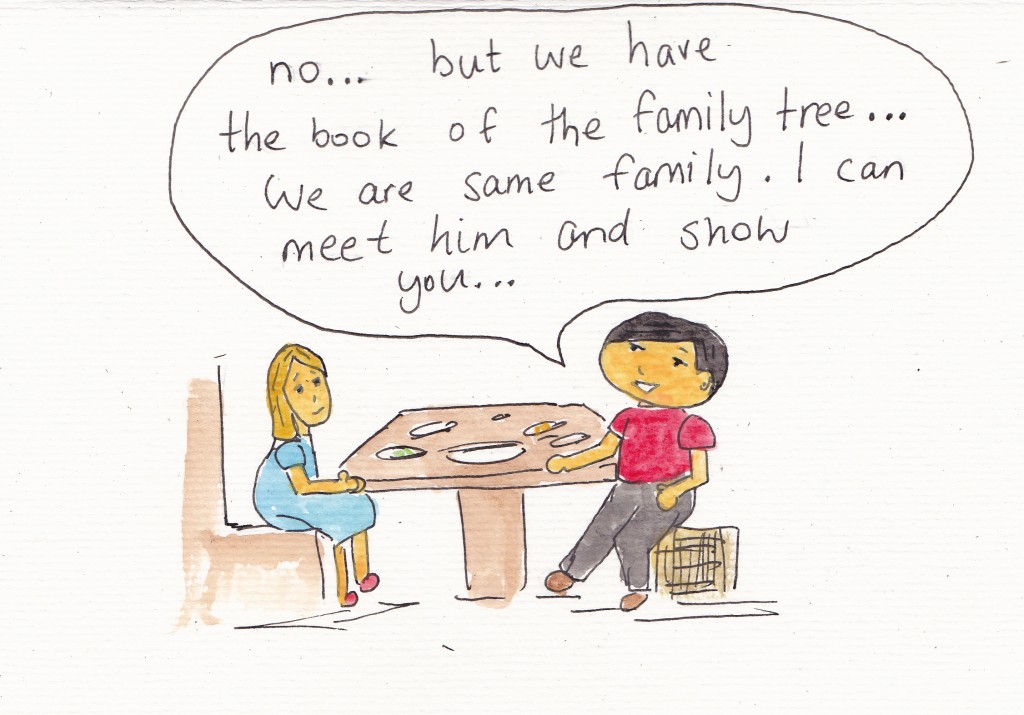
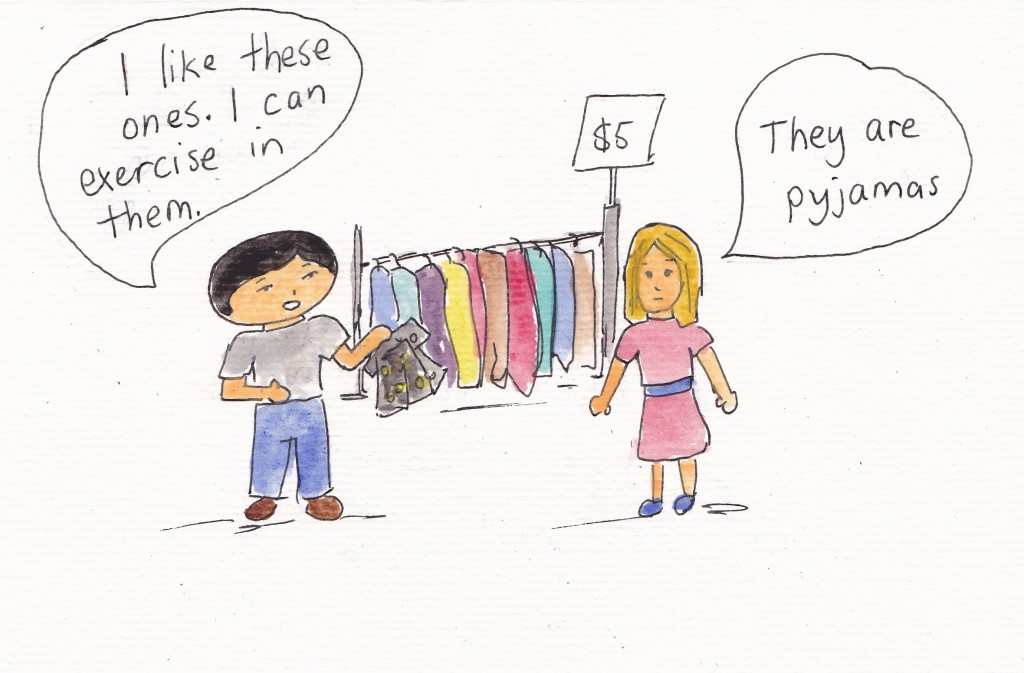
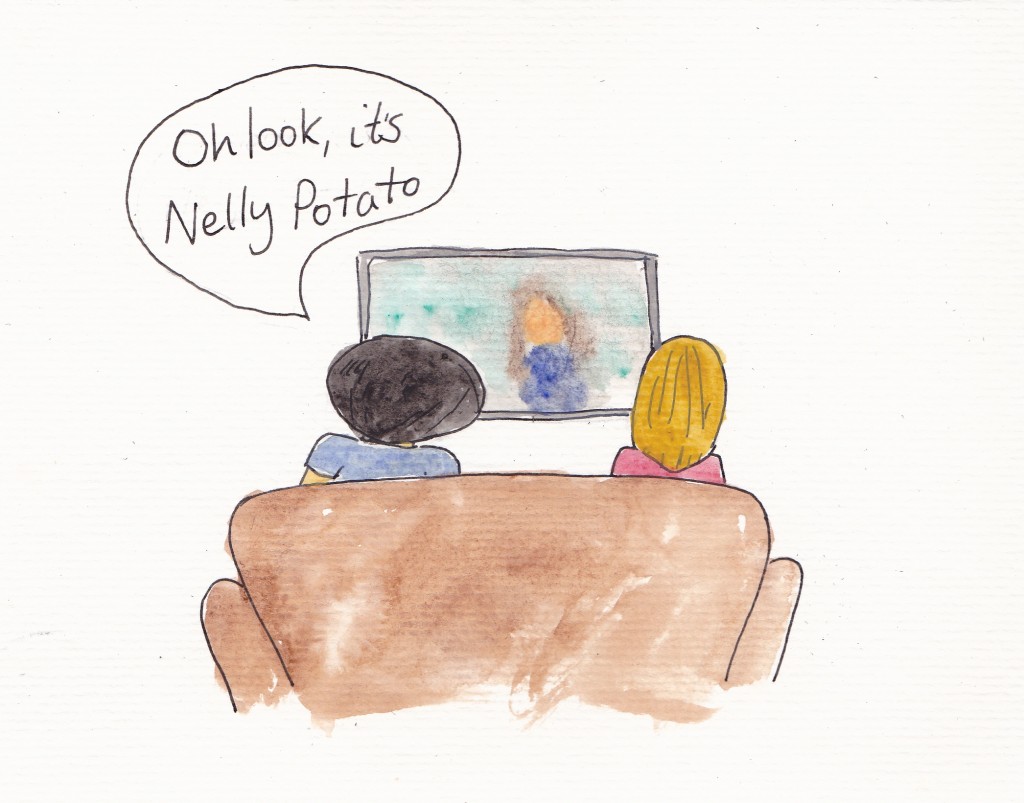
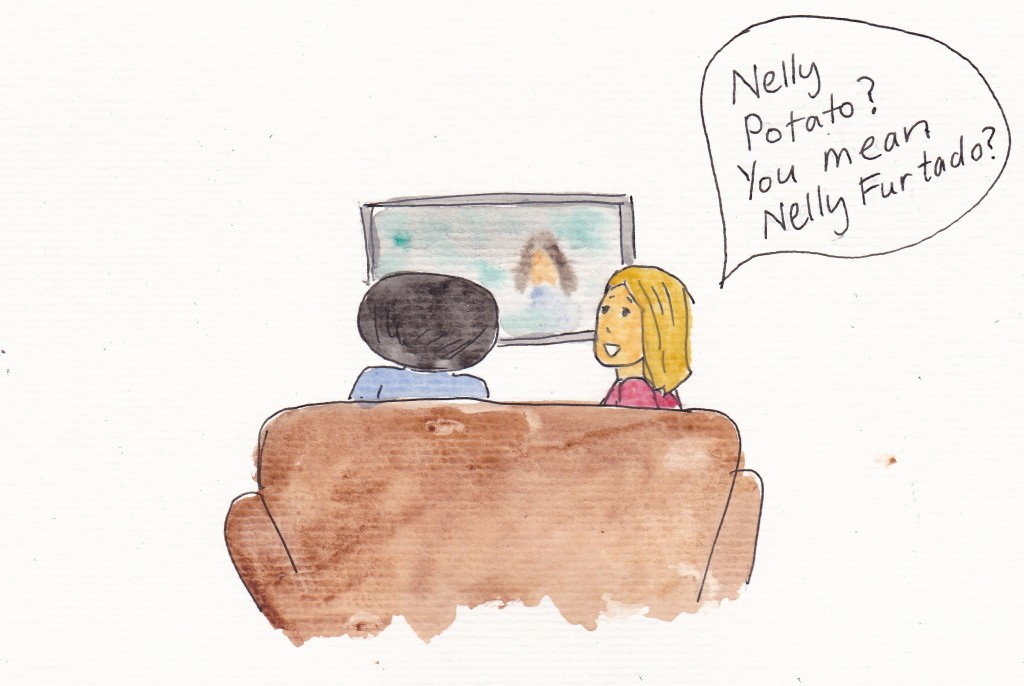
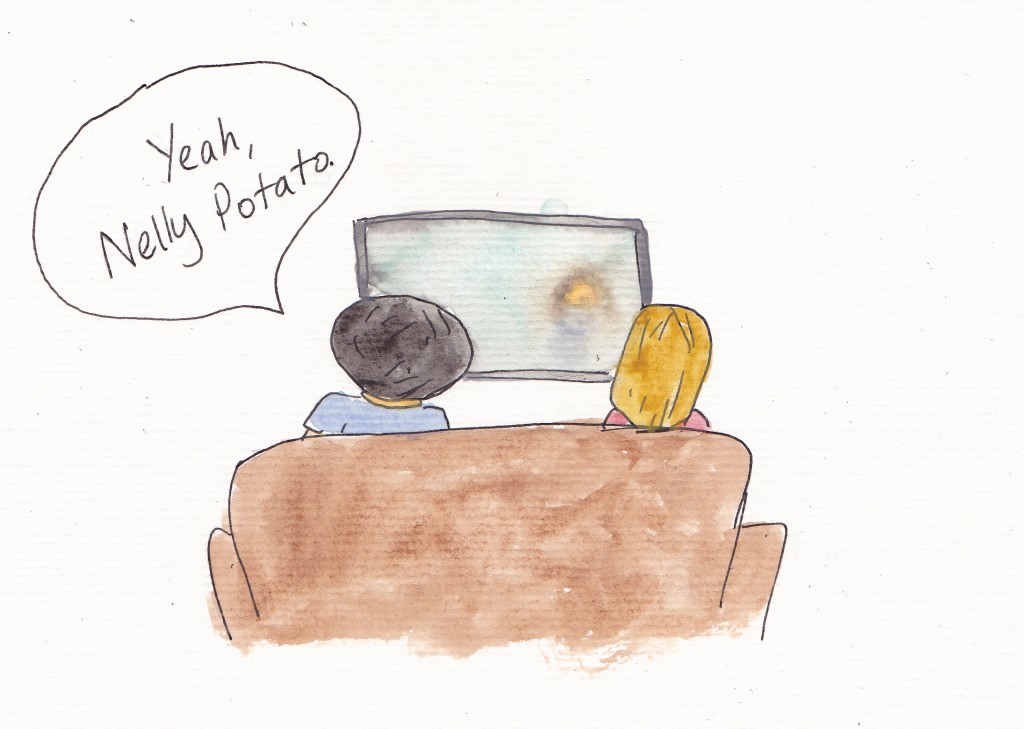

Recent Comments